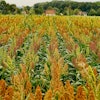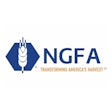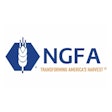
The U.S. Grains Council (USGC) has forged deep ties in mature Asian markets that have been critical to positioning the United States as a stable and reliable trading partner for coarse grains, feed and food products. These ties trace back decades — USGC opened its Japan office in 1961, its South Korea office in 1972 and its office in Taiwan in 1973 — and directly impact U.S. feed grain sales there each marketing year
The Japanese, Korean and Taiwanese markets are characterized by stable populations with high-quality diets, sophisticated food production and marketing systems, and among the highest food safety standards in the world.
Together, they accounted for more than $9 billion in U.S. grain and grain product exports in the 2014/2015 marketing year. Japan alone imported in excess of $5.5 billion in U.S. grains, co-products, pork and poultry, coming in as a top market for U.S. corn and barley. South Korea purchased more than $2.4 billion in U.S. grains and grain products and has rapidly become the fourth largest market for U.S. corn and distiller’s dried grains with solubles (DDGS). Taiwan accounted for overall U.S. grain and grain product sales of nearly $1 billion.
The Council’s promotion of U.S. feed grains and their co-products, as well as sorghum and barley for specialty food products, in these markets reflects the organization’s strategy of nurturing existing relationships while identifying and building new opportunities through intense work in each country.
Long standing relationships built with connections, information
While forging close relationships with local grain industries and regulators is an important part of the Council’s work globally, nowhere are these connections more important than in Japan, South Korea and Taiwan.
Buyers in these markets are concerned about price as well as supply stability, so they watch markets and crop progress very closely.
The Council’s on-the-ground staff members in Tokyo, Seoul and Taipei meet regularly with local customers to provide information about U.S. crop progress, supplies and future plans in one-on-one consultations, trade delegations, seminars and conferences. These ongoing contacts are supplemented with visits by farmer-leaders from the United States who travel to meet with key customers and offer firsthand information about the current market.
In Japan, this outreach takes the form of an annual meeting with the three industry groups — the Japanese Feed Manufacturers Association, Zen-Noh (the National Federation of Agricultural Co-operative Associations) and the Japan Feed Trade Association — that represent the entirety of the country’s feed corn imports and use. This outreach gives USGC an opportunity to discuss what’s happening in the U.S. market and the long-term trends that may affect the supply, demand and quality of U.S. corn.
Similar conferences are held annually with local buying partners in South Korea and Taiwan to offer crop and quality reports and, importantly, position local Council staff as reliable resources for information and technical assistance.
Critical to these efforts are the organization’s annual corn quality reports, issued to provide in-depth information about new crop quality as it comes off the field and is prepared for export. These reports offer information unique among major corn exporters and an opportunity for outreach and trade servicing by both staff and farmers from USGC member organizations. Building on the success of the corn quality reports, the Council has also developed quality reports for sorghum to offer potential buyers timely information about the condition and availability of that crop.
Each year, the Council also welcomes dozens of trade delegations to the United States, including groups of grain buyers, regulators and even media from Japan, Korea and Taiwan. Every year, teams of feed, food and environmental safety experts from Japan and Korea travels to the United States to learn about the U.S. regulatory system and what they should expect from U.S.-based companies developing new biotech events. Every other year, USGC and other agricultural organizations host a goodwill mission with Taiwanese officials to solidify ties with their local agriculture industry.
Seeking new markets for corn-based ethanol
The relationships that the Council has nurtured for decades in mature Asian markets make the organization — and the U.S. grains industry — a trusted partner in opening new opportunities for U.S. agriculture, including exploring possibilities for corn-based ethanol in Japan, South Korea and Taiwan.
While sales of U.S. ethanol to these countries are relatively small now, the Council sees significant room for growth as fuel needs and growing environmental concerns provide openings to promote U.S. ethanol as a reliable way to mitigate greenhouse gas (GHG) emissions while adding a renewable resource into these countries’ energy portfolios.
The key to increased demand for U.S.-produced ethanol in each of these countries is policy changes to mandate use of fuels that are more environmentally friendly and recognition that corn-based ethanol fits the bill.
The organization is working closely with ethanol industry organizations in the United States as well as the U.S. Department of Agriculture, top biofuels scientists and local partners in each country to provide information about the advantages of U.S. ethanol and share experiences with using ethanol domestically.
Japan, South Korea and Taiwan are target markets for the industry’s ethanol outreach efforts like a two-day ethanol trade development conference sponsored by the Asia Pacific Economic Cooperation (APEC) forum and workshops in Seoul and Tokyo. A 2.5% biodiesel blending mandate put in place in South Korea last year is a welcome policy change that can offer new opportunities for ethanol market development in that country. Meanwhile, the Council and its partners are working to show Japanese local regulators how U.S. ethanol can be both environmentally and economically beneficial ahead of their energy policy rewrite in 2017.
Food grains also see a boost
While corn is by far the most voluminous and valuable U.S. grain purchased by Asian customers — and corn-based ethanol holds significant potential — consumers in Japan and Taiwan are among the world’s most health conscious, and the Council has been active in promoting the health benefits of products like beta-glucan barley and white sorghum there.
The USGC does this work via trade shows, seminars and cooking demonstrations as well as special promotions including recipe contests and cookbooks.
The Council was among more than 300 exhibitors at the 2016 Taipei International Bakery Show, promoting the heart-healthy benefits of U.S. beta-glucan barley and has worked with the Nam Chow Group, maker of a ready-to-eat barley rice product, to identify a reliable and long-term U.S. barley supplier.
To further develop this niche market across Asia, USGC hosted a group representing companies from Japan, South Korea and Taiwan in the United States this summer to evaluate firsthand U.S. food barley supplies and meet with producers and companies who can contract specific varieties of food barley.
Sorghum that is high in antioxidants is a new ingredient for health-oriented beverages, spices and seasonings in Japan, and white sorghum’s status as a gluten-free food is also forecast to boost demand. A new, heart-healthy food labeling framework in Japan that kicked in last year is expected to drive even more demand for high-quality U.S. barley. The Council is also working with industry partners, including Zanbakuren and the Japan Barley Promotion Council, to promote the health benefits of this grain.
Keeping strong ties that bind
As global grain markets become more competitive, the Council’s work in mature markets continues to evolve. While trade servicing and providing information to key buyers in Taiwan, Korea and Japan will always be an important part of its outreach, USGC’s staff has also taken on policy-focused outreach to promote ethanol and consumer-focused promotion of food barley and sorghum. These markets are among the most reliable and critical for U.S. farmers and agribusinesses and ones that will continue to demand the Council’s attention over the long term, building on decades of partnership. ❚














